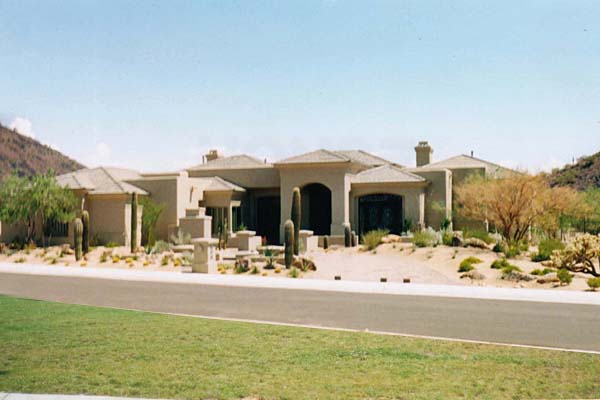PARTY WALL
Understanding Party Walls in Real Estate
In the realm of real estate, the concept of party walls plays a crucial role in defining the rights and responsibilities of property owners with adjoining structures. A party wall is a wall that is erected along the boundary separating two properties, with each owner having a vested interest in its use and maintenance. This shared wall serves as a physical and legal division between two parcels of land and can have a significant impact on property rights and obligations.
The Legal Framework
Rights and Responsibilities
The presence of a party wall grants both property owners certain rights and responsibilities. These walls are typically subject to easements, which means that each owner has the right to use the wall and a corresponding easement over the part of the adjoining owner's land that is covered by the wall. This ensures that both parties have legal access to the wall for maintenance or any other necessary purposes.
Maintenance and Repair
Maintenance and repair obligations concerning party walls are usually outlined in legal statutes or agreements between the respective property owners. These obligations can include the cost of upkeep, structural integrity, and necessary repairs. It is essential for property owners to understand their responsibilities in maintaining the party wall to avoid disputes or legal issues in the future.
Implications for Property Owners
Construction and Alterations
When it comes to constructing new buildings or making alterations to existing structures that involve a party wall, property owners must adhere to specific legal requirements and obtain the necessary permissions. For instance, before undertaking any construction work that could affect the party wall, owners may be required to serve notice to their neighbors and secure a party wall agreement to formalize the proposed changes and ensure compliance with relevant regulations.
When it comes to constructing new buildings or making alterations to existing structures that involve a party wall, property owners must adhere to specific legal requirements and obtain the necessary permissions. For instance, before undertaking any construction work that could affect the party wall, owners may be required to serve notice to their neighbors and secure a party wall agreement to formalize the proposed changes and ensure compliance with relevant regulations.
Dispute Resolution
Disputes related to party walls can arise due to various reasons such as disagreements over maintenance responsibilities, unauthorized alterations, or structural concerns. Property owners should be aware of the dispute resolution mechanisms available to them, which may involve seeking legal advice, mediation, or following the procedures outlined in the relevant legislation.
Conclusion
Understanding the intricacies of party walls is essential for property owners to navigate the legal terrain of real estate. By being well-informed about their rights and responsibilities concerning party walls, individuals can proactively address potential issues and maintain amicable relationships with their neighbors. Clear communication, compliance with legal requirements, and a willingness to engage in constructive dialogue are integral to ensuring harmonious coexistence and effective management of party wall matters in the realm of real estate.
MORE REAL ESTATE TERMS
A, B, C, D, E, F, G, H, I, J, K, L, M, N, O, P, Q, R, S, T, U, V, W, X, Y, Z
Featured New Home

Featured Mortgage Brokers
- Priority Mortgage Corp., mortgage broker in Worthington, OH
150 E Wilson Bridge Rd Ste 350
Worthington, OH 43085 - REVERSE MORTGAGE SOLUTIONS INC, BETHESDA, MD
6701 DEMOCRACY BLVD STE 300
BETHESDA, MD 20817 - LEADER ONE FINANCIAL CORPORATION, OVERLAND PARK, KS
11020 KING ST STE 390
OVERLAND PARK, KS 66210 - Harvard Mortgage, mortgage broker in Albuquerque, NM
9551 Paseo del Norte NE
Albuquerque, NM 87122 - TOP FLITE FINANCIAL INC, WATERFORD, MI
5663 HIGHLAND RD
WATERFORD, MI 48327